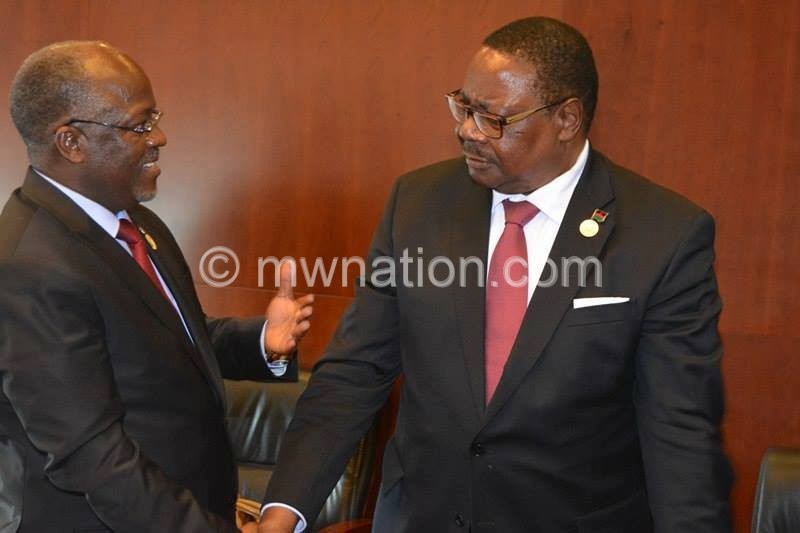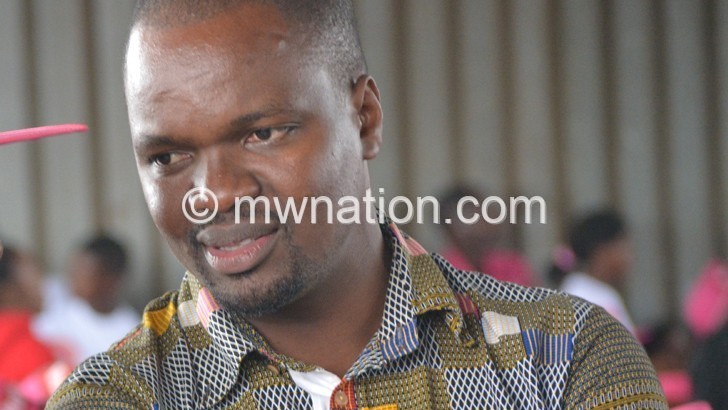Did lake dispute talks collapse?
Eighteen months after the Sadc High-Level Mediation Team met on the Lake Malawi border issue, the team has not briefed President Peter Mutharika on the resolution of the meeting and there seems to be no progress on the matter. The question that comes to the mind is: Did the talks collapse?
Meanwhile, the Malawi Government has adopted a ‘let sleeping dogs lie’ stance on the matter, besides being clueless on the way forward after the team, led by former Mozambican President Joacquim Chissano, failed to meet President Mutharika within the agreed three months after the talks.

The team, whose other members are former South Africa and Botswana presidents Thabo Mbeki and Festus Mogae, respectively, held its last negotiations in Pretoria, South Africa in July 2017.
After the Pretoria dialogue meeting, they were expected to come up with the much-anticipated resolutions and brief Mutharika and his Tanzanian counterpart John Magufuli within three months.
However, almost one-and-half years have now elapsed since the discussions were held with no progress on the issue and Mutharika is in the dark, according to State House.

Presidential press secretary Mgeme Kalilani confirmed in an interview on Thursday the team was yet to meet Mutharika after it held its last meeting.
Said Kalilani: “The expectation is that after that meeting, the elders’ team handling the matter shall engage the President of Malawi. They are probably not ready, so we wait until they are.”
Efforts to engage Chissano in Mozambique proved futile but Malawi’s High Commissioner to that country Frank Viyazghi told Weekend Nation “the matter is being handled through diplomatic channels”.
The envoy declined to comment further, saying the Ministry of Foreign Affairs and International Cooperation was aware about the current position.
Foreign Affairs Minister Emmanuel Fabiano did not pick up his phones after several attempts while the ministry’s acting principal secretary Veronica Chidothe was not available.
Director of political affairs in the ministry Francis Mponda who has been close to the issue declined to comment and referred Weekend Nation to spokesperson Rejoice Shumba who also asked for more time “to consult”.
When contacted, government spokesperson Henry Mussa, who is also Minister of Information and Communication Technology, promised to call back but as we went to press he had not.
The mediation team commenced its talks on the longstanding dispute six years ago and it had its first meeting on March 20 and 21 2014 in Maputo, Mozambique, where governments of Malawi and Tanzania submitted their respective positions.
In her submission, Malawi showed the boundary was the shoreline of Lake Malawi as established by Article 1(2) of the 1890 Anglo-German Treaty while Tanzania claims the boundary is the median line of the lake based on the principle of customary international law.
But the lack of progress on the issue has not amused the Parliamentary Committee on International Relations which believes by not pushing, government is failing its obligation on the issue.
The committee’s chairperson Alex Major said in an interview last week it was high time government demanded a report from the mediation team.
He said: “Government needs to brief Malawians about the issue. We feel Malawians need to know the progress on this crucial matter,” which is a source of cold war between Malawi and Tanzania.
In its annual report to Parliament covering the period September 2017 to April 2018 the committee also expressed concern with the silence on the matter and engaged Ministry of Foreign Affairs and International Cooperation officials on the status of the dispute.
Major also told Parliament in November last year, his committee had learnt that the conciliators had proposed that the two countries should share the resources first before a determination is made.
But international relations expert and Malawi’s former diplomat John Chikago casts doubt on the impartiality of the mediators on the matter and the expected output.
He claims that there is a bond between Tanzania, South Africa and Mozambique which puts Malawi at a disadvantage to get anything valuable as long as the issue continued being handled by the three.
Explained Chikago: “The truth is that Malawi is a loser on the matter. Historically, Tanzania accommodated South Africa’s ruling ANC [African National Congress]. Mozambique did the same and only Malawi did not. Until the 1990s, Malawi was South Africa’s enemy because they alleged that we were not helping them [to fight against the apartheid regime].
“So these three countries are friends and I don’t think Mbeki can turn against Tanzania or Mozambique; the same with Chissano. They know what they are doing. There are certain things that are happening that they don’t want to tell Malawi.”
In addition, reports also indicate Mozambique’s ruling party Mozambique Liberation Front (Frelimo) was founded in Tanzania in 1962 as a nationalist movement to fight for the independence of Mozambique.
Chissano became President of Mozambique under the ticket of Frelimo while, on the other hand, Mbeki also trained in Tanzania.
Chikago proposed that the best Malawi could do is to go for an Easement Certificate which could be issued either by Sadc or the African Union so that Tanzania could use the waters while the lake still belongs to Malawi.
An easement is a right that a property owner has to some use of the property of another, usually that is adjoined.
Just before the July 2017 Pretoria meeting, Tanzania failed to honour another dialogue the mediators arranged in Johannesburg on May 8 and 9 2017.
The snubbing came barely a week after former Tanzanian High Commissioner to Malawi Victoria Mwakasenge said it was not a secret that Malawi was in oil exploration; hence, they would also want to benefit from the same lake resources.
Government has maintained her position on the boundary and expects the mediation team to pronounce itself on the fundamental question on where the boundary lies between the two countries. n





